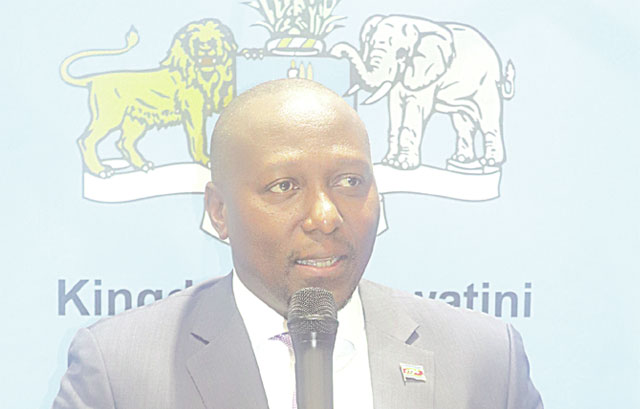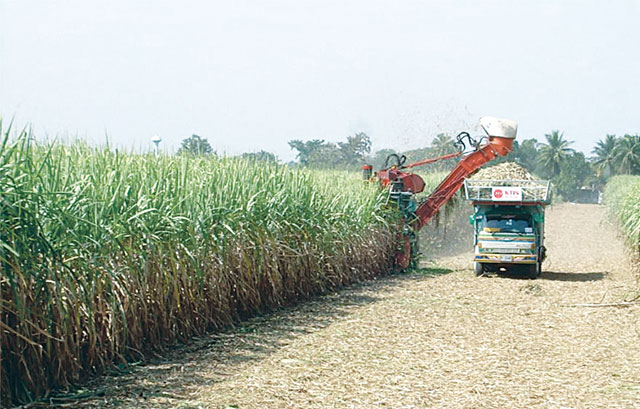By KWANELE DHLADHLA | 2020-09-16

According to the Central Statistics Office (CSO), the economy recorded a technical recession in the first quarter of 2020.
In its Recent Economic Developments (RED), the Central Bank of Eswatini reported that economic activity, as measured by the quarterly gross domestic product (QGDP), fell by 6.5 per cent on a year-on-year basis (seasonally adjusted), in the first quarter of 2020, from a revised decline of 1.2 per cent in the last quarter of 2019.
“On a quarter-on-quarter basis, economic activity contracted by 5.3 per cent (seasonally adjusted) in the first quarter of 2020 from a 0.3 per cent increase in the fourth quarter of 2019,” said CBE. It was explained that the observed slump in overall economic activity was largely attributed to poor performance in the secondary sector. The secondary sector contracted by a significant 19.3 per cent, year-on-year, in the quarter ended March 2020 owing to poor performance in the ‘manufacturing’, ‘electricity supply’ and ‘construction’ sub-sectors. Within the manufacturing sector, CBE said notable decreases in economic activity were observed in the ‘manufacturing of beverages’, ‘manufacturing of textiles and wearing apparel’ as well as ‘manufacturing of wood and paper products.
“Fiscal cash-flow challenges continued to weigh negatively on implementation of public infrastructural projects thereby resulting in constrained output in construction activity. Evidently, construction activity declined by 29.0 per cent, year-on-year, in the first quarter of 2020 from a 21.0 per cent increase in the fourth quarter of 2019,” CBE noted.
Muted growth was observed in the tertiary sector at 0.1 per cent, in the first quarter of 2020. Notable growth emanated mainly from the ‘financial services’, ‘human health and social work activities’, and ‘public administration’.
On the contrary, CBE said there was a slowdown in economic activity in tourism related activities such as ‘arts, entertainment and recreation’, ‘accommodation and food service activities’ largely reflecting first round effects of the COVID-19 pandemic. Other sectors that suffered from weak demand were ‘wholesale and retail trade’ and ‘professional services’.
Total electricity sales (sourced from the Eswatini Electricity Company) decreased by 8.6 per cent in the quarter ended June 2020, compared to a 1.2 per cent increase in the quarter ended March 2020.
Partly reflecting the constraints to economic activity as a result of the lockdown effected in March 2020, electricity sales from the ‘commercial’ and ‘irrigation power and bulk’ categories declined during the quarter under review, while ‘domestic’ electricity sales slightly increased.
Electricity consumption by the ‘commercial’ category further fell by 3.7 per cent in the second quarter of 2020 compared to a 3.5 per cent decline in the previous quarter.
“As some businesses remain closed due to the partial lockdown and controlled measures effected on those that are operating, electricity demand remains fairly lower than in previous years. Evidently, electricity demand by the ‘irrigation power and bulk’ category mainly dominated by sugar cane farming also significantly fell by 20.6 per cent in the quarter ended June 2020 from a 4.1 per cent increase in the previous quarter end,” said CBE.
share story
Post Your Comments Below

SOCCER - ARE they a target for being trendsetters?
Following the movie-like scene, where ...

Prime Minister, Russell Dlamini, has maintained that government jobs are not a privilege, saying ...

OVER 50 young people attended the life-changing seminar hosted by Semusa Networks on Saturday.

The United States Department of Agriculture (USDA) Post in Eswatini paints a positive picture for...
All material © Swazi Observer. Material may not be published or reproduced in any form without prior written permission.
Design by Real Image Internet